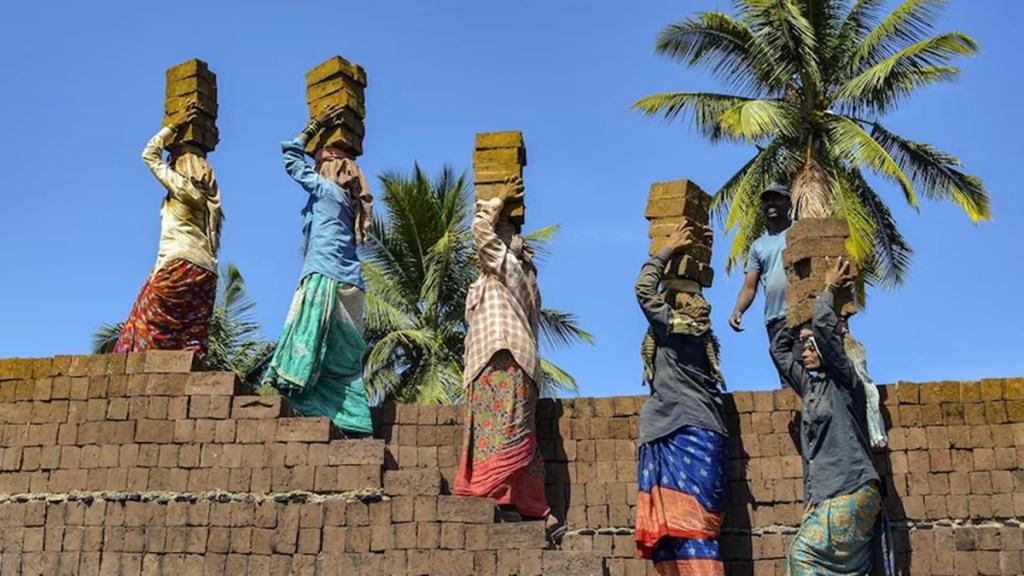The government seems to expect a significant reduction in the number of families seeking work under the Mahatma Gandhi National Rural Employment Guarantee Scheme (MGNREGS) as well as the job cards issued over the coming years. The rural development ministry has reportedly demanded a 12% increase in the scheme’s outlay for the five years through FY30, compared to the previous five.
This may not even be enough to cover the inflation of material costs during the period, let alone any increase in wages to fully compensate for inflation, unless the beneficiary pool shrinks substantially. In FY25, 57.9 million households sought daily-wage MGNREGS work, down 23% from FY21 when it peaked amid the acute rural distress caused by the pandemic. The work offered (person days generated) has seen an even sharper decline, indicating increased vigil to check misuse of funds. It is plausible that all who seek work aren’t getting it.
An attempt by the Union government to rein in excesses via a nationwide roll-out of Aadhar-based payment of wages may also have contributed to the sharp decline in MGNREGS expenditure in real terms. The budget outlay for the scheme declined from Rs 1.1 lakh crore in FY21 to `85,681 crore (revised estimate) in FY25, and is hardly seen to rise in the current fiscal. While a reduction in the number of beneficiaries is par for the course when poverty is reducing, the needy shouldn’t be deprived either.
The post-pandemic period apparently led to a return of the unskilled and semi-skilled job seekers from urban areas to their rural homes, seeking a share in the farm income pie. Real rural wages have therefore remained stagnant for years. The boom in construction activity in urban centres and the relatively robust performance of the agriculture sector in recent years may have alleviated the rural distress to an extent. However, the situation is still grim in several areas. The fact that demand for MGNREGS work isn’t reducing as fast as it should is an indicator of this.
This newspaper has recently reported that four states — Tamil Nadu, Uttar Pradesh, Bihar, and Maharashtra — have got an additional Rs 13,000 crore between FY23 and FY25, while West Bengal could not lay its hands on its share. There has been no release of funds to West Bengal since March 2022, as the Centre invoked Section 27 of the MGNREG Act, for “non-compliance with its directives”.
That absence of fund release to one state can itself lead to gains for others proves demand is not duly met under normal circumstances. The relevant Parliament committee has recommended the MGNREGS wages be raised to at least `400/day (from Rs 241-400 at present), along with an increase in guaranteed working days to 150, from 100. Given the rates of inflation since the pan-India roll-out of the scheme in 2008-09, the panel’s recommendation isn’t extravagant, and needs to be acted upon.
A set of guidelines issued to the states recently aims to increase the oversight of gram panchayats over job cards deletions. This is welcome. MGNREGS has been a relatively successful welfare scheme due to its better design, and provided meaningful aid to the rural poor. It needs to be run efficiently for the next few decades, till the country’s income levels improve and the scheme turns redundant. Other options like a Universal Basic Income scheme involve several implementation challenges.

